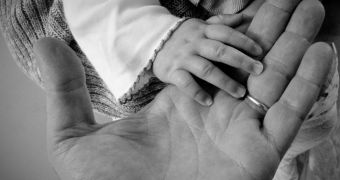Children have notoriously curious and absorbing minds, and they can easily remember words and things that their parents forget after a while. A new investigation demonstrates that parents should exercise extra caution when, for example, disciplining their children, especially when it comes to using their hands to make a point. Psychologists say that gestures can easily become embedded in the minds of youngsters, making them give false response to questions that are associated with the same gesture. The habit can continue even later in life, the team behind the research says.
The work has further implications as well, the group believes. In some instances, parents, social workers, psychologists, lawyers or investigators may be attempting to interview or question children, in order to extract the truth from them. The study suggests that, if this is done without regard to both the words and gestures used, the child may involuntarily lie, or omit some very important facts from his or her account. For adults, using their hands to communicate is done almost without them noticing, and others rarely pay conscious attention to gestures. But children are extremely sensitive to these motions.
Another reason why special attention should be given to this is the fact that children are not very good at remembering things. For many years after birth, the small ones rely on adults to remember and even interpret data for them, which makes their own memories highly-malleable. According to Northwestern University scientist Sara Broaders, the lead researcher on the study, parents and other adults can easily lead children on, even if unintentionally, changing the actual memories their kids retain. In a paper detailing the findings, which appears in the latest issue of the esteemed journal Psychological Science, the experts give examples of how gesture can influence children's memories.
For instance, it is common practice among social workers to ask children direct and opened questions, such as for example “What did you eat at dinner?” Asking the young one specific questions, such as “Did you have yogurt for dinner?” is likely to prompt a negative response, so this type of queries are generally avoided. The Northwestern team noticed that if investigators associated an opened question with a hand gesture denoting eating yogurt, then children were also very likely to answer falsely. The trend was ubiquitous, with 77 percent of studied children answering falsely when a misleading gesture accompanied the question.
“It certainly seems reasonable that adults would gesture more with children, especially really little children. And if they are gesturing, they may be leading the child in ways they don't realize. [Gestures] can lead to answers that are very specific but not true,” says Broaders, quoted by LiveScience.

 14 DAY TRIAL //
14 DAY TRIAL //